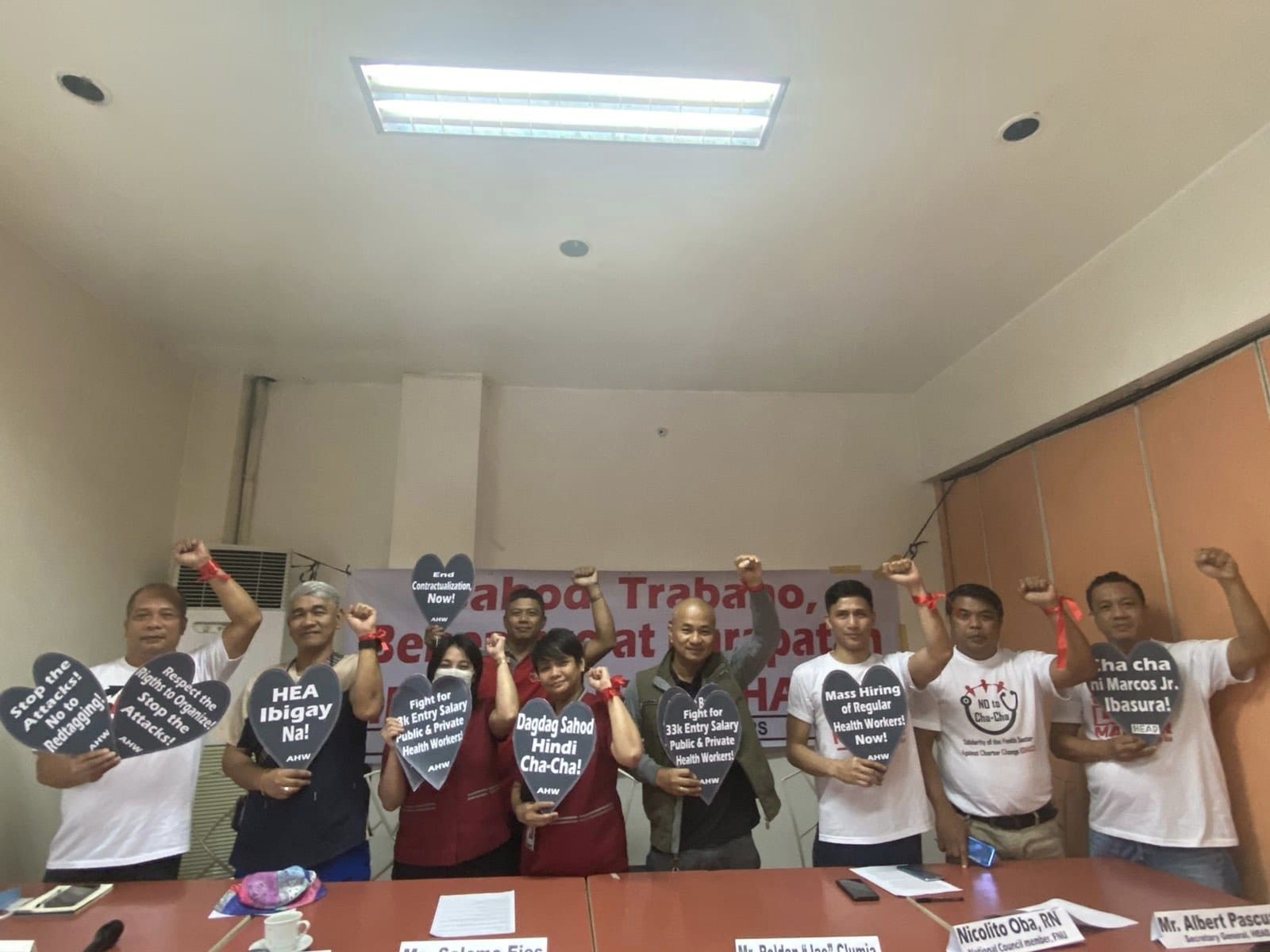Health workers decry gov't neglect on their plight, slam focus on charter change
Members of the Alliance of Health Workers (AHW) and various health organizations convened on Monday, Feb. 12, to condemn the ongoing neglect of health workers' welfare and the populace's right to quality healthcare under the Marcos administration.

In a statement, the AHW, led by national president Robert Mendoza, minced no words in criticizing the administration's handling of the healthcare sector.
“Two years in term, but the current situation of health workers continues to worsen—low salaries, unpaid and inadequate benefits, job insecurity, high taxes, being overworked due to chronic understaffing, and poor working conditions. The healthcare budget is extremely low, and the government continuously neglects the welfare of health workers and the health of the people,“ said Mendoza.
He also added that amid the economic crisis, health workers and the majority of the Filipino people also suffered extreme hunger, poverty, disease, unemployment, skyrocketing prices of basic commodities, transportation, and no free health services.
“Instead of addressing all these, the legislators and the Marcos Jr. administration prioritize the move for charter change,” he pointed out.
Meanwhile, Sally Ejes, president of the Employees Association (PHCEA-AHW), echoed these sentiments, emphasizing the urgent need for salary increases across the board.
“Dagdag sahod, hindi Cha-Cha (Increased wages, not Cha-Cha)! The budget they used for charter change through the People’s Initiative would be better spent on salary increases for all health workers and government employees. It’s been a long time since there has been a substantial salary increase among our ranks,” she noted.
She called for a substantial raise to address the soaring cost of living, demanding an entry salary of P33,000 for all public and private health workers and government employees.
Furthermore, adding to the chorus of grievances, Edwin Pacheco, president of the National Kidney and Transplant Institute (NKTIEA-AHW), decried the prevalence of contractualization within the healthcare sector, citing its detrimental impact on staffing levels and worker rights.
Pacheco urged for the immediate regularization of contractual health workers and a mass hiring initiative to alleviate chronic understaffing in public hospitals.

Mendoza also cautioned against the administration's push for charter change.
He warned that such amendments could exacerbate existing issues by favoring foreign businesses, potentially leading to the privatization of public hospitals and widespread layoffs.
Moreover, AHW issued a rallying cry for unity among health workers and the Filipino people, urging them to resist efforts for Charter Change and advocate for wage hikes, benefits, job security, and rights.
On the other hand, in a show of solidarity, health workers announced plans for a major mobilization on Feb. 14, dubbed the "Black Hearts Day Protest," to demand immediate action from the Marcos Jr. administration.